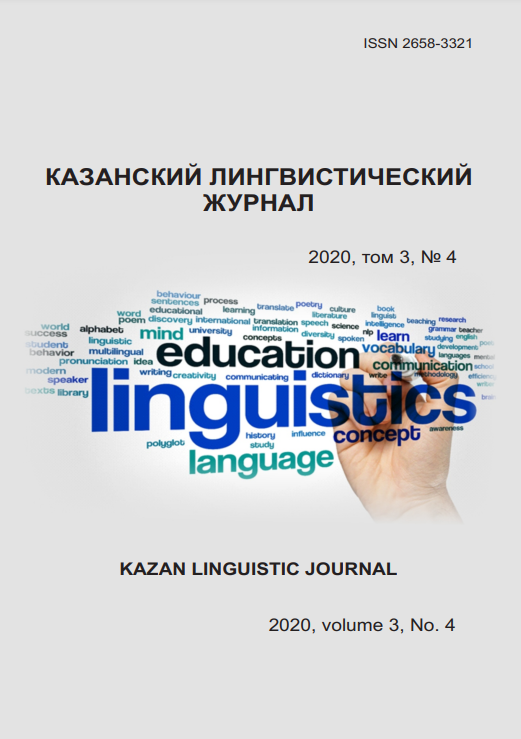Representation of Оphelia over time
Keywords:
Cultural materialism, the second wave of feminism, feminist literary criticism, gynocriticism, Elizabethan period, Hamlet, OpheliaAbstract
The article discusses two works of art – William Shakespeare’s eminent play “Hamlet” written during the Elizabethan period and a modern film “Ophelia” made by a female director Claire McCarthy in the second decade of the 21st century – in 2018, and adapted from Lisa Klein’s young adult book with the same name. The article looks at these cultural products through the lens of a literary theory called Cultural materialism that came into being in 1985. The main objective of this paper is to study how a minor character Ophelia is portrayed in these two works and explain how a change of perspectives from a male character to a female one became possible nowadays. It has been found that the second wave of feminism, the emergence of feminist literary criticism in the 1960s-70s and a shift of attention from ‘androtexts’ (books written by men) to ‘gynotexts’ (books written by women) had a great influence on the perception of women in society and art. Moreover, the development of gynocriticism encouraged the public to recognize and acknowledge works produced by female authors and change the attitude to them. Summing up the results, it can be concluded that because of the reasons mentioned above it is possible now to place Ophelia at the center of the story and look at the events of the play from Ophelia’s point of view.
References
References
Barry P. (2002). Beginning Theory: An Introduction to Literary and Cultural Theory. Pp. 117–118, 182–184.
Barton A. (1979). Hamlet by William Shakespeare. Introduction. Pp. 17, 39.
Belsey K. (1985). The Subject of Tragedy: Identity and Difference in Renaissance Drama.
Bradley A. (1906). Shakespearean Tragedy: Lectures on Hamlet, Othello, King Lear, Macbeth. P. 160.
Dagris M. (2019). Ophelia’ Review: Out of the Shadows (and Into the Weeds).
Gunenc M. (2015). Ophelia and Gertrude: victimized women in Hamlet. Pp. 165–166.
Henderson S. (2019). Hamlet: A Feminist Argument.
Lugones M. (1983). Have we got a theory for you! Feminist theory, cultural imperialism and the demand for ‘the woman's voice’. Pp. 573–581.
Minow N. (2019). Ophelia movie review & film summary.
Olivas T. A. (2015). Who is Ophelia? An examination of the Objectification and Subjectivity of Shakespeare's Ophelia. Pp. 1–3, 90.
Plate L. (2016). Gynocriticism.
Rome E. (2019). Reviving Ophelia: Inside the New Film That Gives Voice to Hamlet’s Tragic Heroine.
Safaei M; Suliza Hashim R. (2014). Ophelia Revised: The Paradox of Femme Fragile in Modern Revisionings of Hamlet. P. 311.
Schmitz T. (2008). Modern Literary Theory and Ancient Texts: An Introduction. Pp. 176–177, 183–187.
Showalter E. (1993). Representing Ophelia: women, madness, and the responsibilities of feminist criticism. Pp. 77, 81–83.
Stahler K. (2018). Daisy Ridley's New Movie Is The Feminist Shakespeare Fan Fiction Of Your Dreams.






